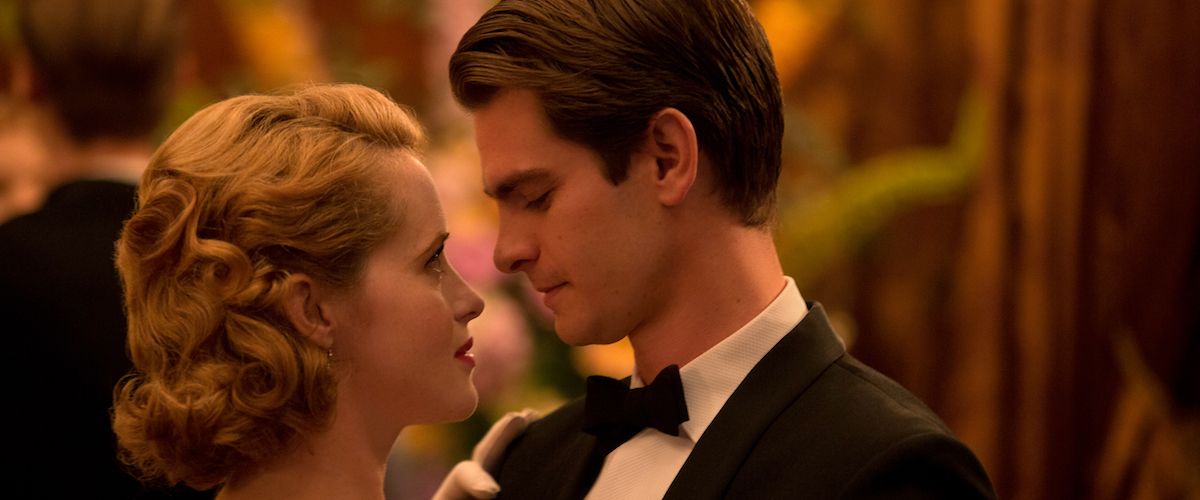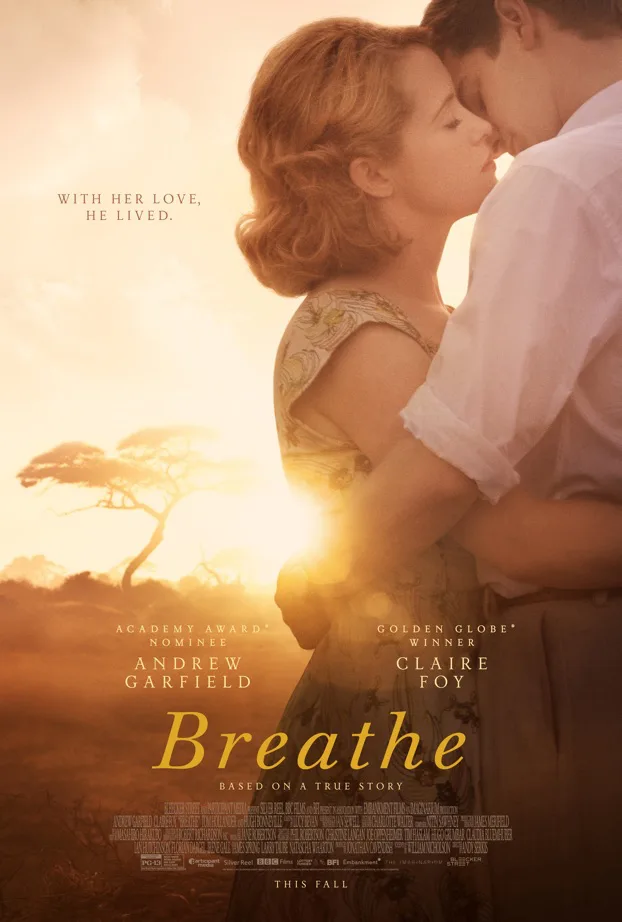“Breathe,” Andy Serkis’ directorial debut, is an undeniably well-intentioned film. Serkis directs this true story of the parents of one of his best friends and producing partners, Jonathan Cavendish, and he does so with sensitivity and empathy. It’s hard to even imagine making a film about your parents, much less if their story was this essential to the quality of life for disabled people. If you’re thinking that making a story about someone that important to you might lead to the air of simplification that comes with hero worship, you’re not wrong. Of course, Jonathan Cavendish and his best friend should place Robin and Diana Cavendish on pedestals as high as they can reach, but that approach doesn’t really allow for three-dimensional filmmaking. The result is a film that sentimentalizes and softens what was clearly a very difficult situation, turning something that should be effective and honest into something that too often feels manipulative. The performances and the inherent power of the true story keep it from being a complete disaster, but one hopes Serkis moves on to more challenging material with his follow-up.
Serkis and writer William Nicholson get the courtship of Diana (Claire Foy) and Robin Cavendish (Andrew Garfield) out of the way pretty quickly. Before the credits have really ended, they’re madly in love. They quickly marry and Diana gets pregnant with the baby who will become producer Jonathan Cavendish. Then tragedy strikes when Robin develops polio, told he will only live for a few more months, and that he has irreversible paralysis. At first, he can’t even speak, able to only barely move his eyes. He’s put on a respirator in a hospital, and basically told that’s where he will die. He seems to come to terms with this, asking to be put out of his misery, but Diana convinces him to fight, even if just to get as much time as possible with his new son.
As he begins that long fight, he takes the battle much further than anyone had before. When he and Diana are basically told that he’ll live out his few remaining days in a hospital bed, they devise a way to take the equipment needed to keep him alive back to their house, despite the protestations of the head doctor. The Cavendishes then take that transportability a step further, figuring out a way to attach a respirator to a chair, and allowing Robin not only to get out of the house, but to travel. He becomes an advocate for the disabled, and someone who really pushed to change the way the medical industry looked at quality of life for people once presumed unable to have any.
Obviously, that’s a heartwarming story. And Garfield and Foy play the Cavendishes with a great deal of respect and admiration—too much so, if I’m being honest. “Breathe” never asks, much less answers, any of the really difficult questions about what the Cavendishes’ lives must have been like. There’s a brief moment early on in which Robin wants to die and another moment halfway through when he suggests Diana take a lover, but those kind of truthful moments of pain and confusion are too rare. This is a deeply sentimental version of a story that demanded more honesty and depth. And the final act feels purposefully manipulative, trying to pull the heartstrings in a way that the true story merits but the film hasn’t really earned. The characters here are too flat and one can’t shake the feeling that it’s betraying the truth of their story to tell it with such a gauzy, TV movie sheen on top of it.
There is a metatextual element of “Breathe” that’s almost more interesting than the movie when one thinks about who made it. Jonathan Cavendish became a producer, and films are often ways to transport people to places they wouldn’t otherwise go and give voice to those who wouldn’t otherwise have one. I’d almost rather watch a documentary about Robin Cavendish in which the producer could draw that line between how his father transformed the world with his deep empathy for those often ignored to how his son now makes movies designed to change the world in their own way. Even Serkis, who may not first seem like the person you’d expect to do this kind of prestige project, makes total sense if you think about how much he too wants to revolutionize his industry in a way that makes the impossible possible. I firmly believe that movie history books will be written about how much breakthrough work Serkis has done with films like “War for the Planet of the Apes” and “The Lord of the Rings.” And he’s such a creative force that I could easily see him being a great director someday too. He just needs to take the kind of risks and seek the kind of breakthroughs he has in his motion-capture work, and try to do more than he’s told he can, just like the father of one of his best friends.
This review was originally filed on September 11th from the Toronto International Film Festival.




















